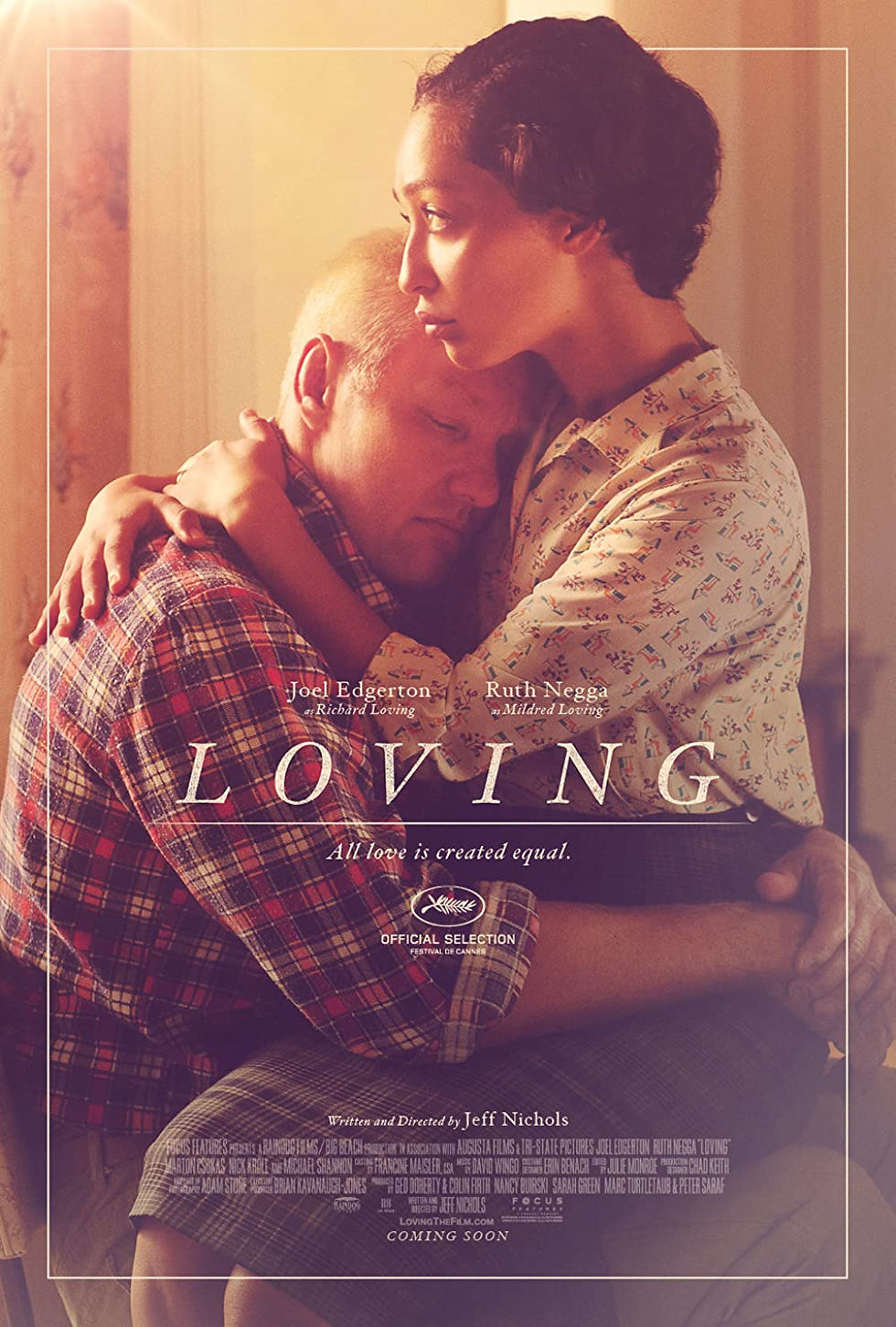Loving
- Young Critic

- Nov 3, 2016
- 2 min read

Jeff Nichols is quickly becoming one of the best directors to make movies about America. I’m not talking about New York or LA, but of the deep America that rarely gets shown onscreen. His films range from Take Shelter and Mud to this year’s Midnight Special and now Loving which was an official selection of the 2016 Cannes Film Festival.
Loving is the story of Richard and Mildred Loving (played by Joel Edgerton and Ruth Negga) who are deeply in love, about to have a baby, and recently married. They like to live a quiet life, living with Mildred’s parents, attending local car races, and Richard earns a living as a construction worker. One night in 1958, however, as they are sleeping peacefully, the police barge in and arrest both of them, the charges: they were in each other’s company. The problem here, according to their resident state of Virginia, is that interracial couples are illegal, and Mildred is black, while Richard is white. The true story of the couple ensues as they take their case to the United States’ Supreme Court in the famous 1967 case of Loving vs. State of Virginia, which repealed all interracial marriage bans in the country.
Jeff Nichols is an admirable director for his want to display actions on screen in the subtlest and most repressed of manners. He doesn’t go for the overdramatic or swell of music and great show of emotion, he goes for the realistic reaction with small tics dictating what our characters are going through.
It also helps that Nichols has Edgerton and Negga to work with, they are both spectacular actors, with Negga commanding every moment she has on screen and Edgerton showing off his skills once again as one of the most versatile actors of his generation (think of him in The Great Gatsby, Warrior, The Gift, and even his previous collaboration with Nichols: Midnight Special).
Through Nichols’ want for subtlety and realism, however, we find a slow place that settles into the film. Now this particular slow-burn is helpful for character development and to show the audience the incredible amount of time that the Lovings had to go through until they were given their rightful justice, but nevertheless a slow film is never something that audiences clamor to, and this is one of the few but significant ‘buts’ in the film.
As for the film’s significance today, it couldn’t come at a more appropriate time with racial bias and strained relations ubiquitous not only in the US but in Europe, Australia, and even South East Asia. The film’s look into two people’s lives rather than the activist aspect of the story shows us how simple the matters of humanity truly are, and how overblown and overanalyzed we are treating them in our society.
8.3/10








Comments